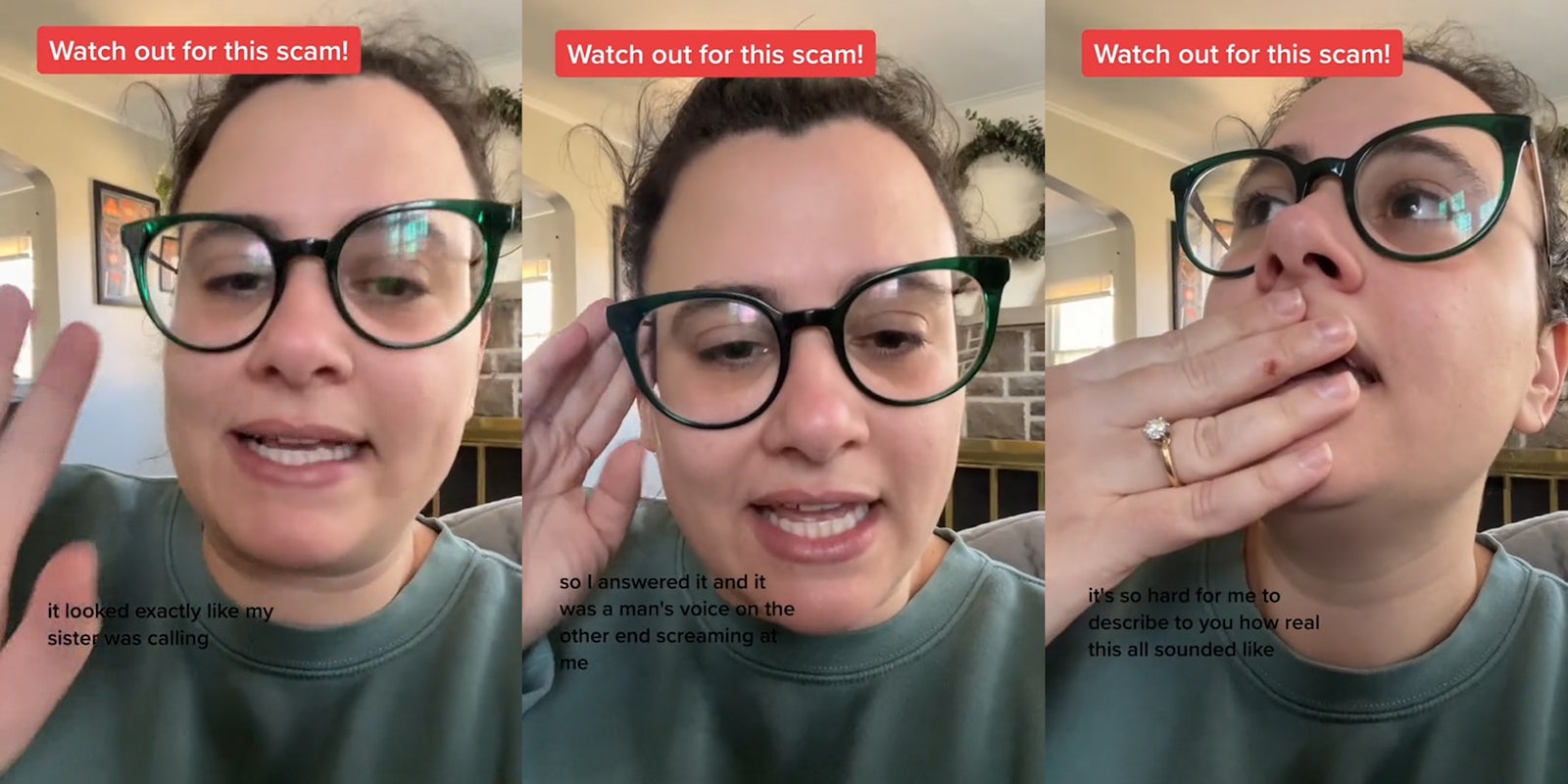Virtual kidnapping scams—in which someone receives a call from someone pretending that they’re holding a family member hostage so they can extort money out of you—have been around for years. But one woman revealed the way in which she fell for this one.
TikToker @bethroyce posted a video in an attempt to warn others about how sophisticated those scam calls have become. She relayed receiving a phone call early in the morning, and initially, she didn’t think anything of it. Her sister’s contact information and photo came up on her photo ID.
Once she answered it, she heard a man’s voice. He screamed at her not to call anyone else (such as the police) and that he had her sister.
“It’s so hard for me to describe to you how real this all sounded,” Royce said. “Like, I’m not an idiot. I’m so good at spotting phishing emails. I’m so good at spotting spam calls. I never fall for anything. And this was like, the realest, scariest moment of my entire life. Literally.”
@bethroyce I feel the need to tell everyone I know about this. Literally the scarriest moment of my entire life #scam #scammers #scammed #hostagesituation #trauma #phonescam #fyp #foryoupage #fypシ #viral ♬ original sound – Beth
At certain points, Royce said she could hear a woman sobbing, and the man talking to her tried to calm her down. At others, he was trying to assure Royce that he wasn’t a bad person, had recently been released from jail, and needed money.
She was quickly able to verify that the call was a scam. As the man talked to her, she woke up her mother (who was staying at the house) and silently alerted her mom to call the police. They also confirmed that her sister was fine, but not before Royce, according to replies she made in the comments, sent the man $500.
As people watched the video, they shared their own stories of receiving similar calls, and 911 dispatchers were sympathetic, noting just how often they received calls about this scam.
Royce also offered advice for anyone who might find themselves in this situation where a scammer might be spoofing a loved one’s contact information.
“If you get a call like this, I read that it’s recommended that you hang up and then immediately call back because it’ll call your actual contact,” she said.
But other commenters noted how much more sophisticated and horrifying those calls might become.
“Imagine what they’ll do with AI voice and video,” one person wrote.
After the video went viral, Royce made a follow-up TikTok to answer questions people might have, including some criticisms about how she handled the situation. For one thing, she wasn’t aware that you could spoof a person’s contact information.
@bethroyce Replying to @delby ♬ original sound – Beth
In the comments, she said she is working with her bank to get her $500 back.
The FBI also put out a press release last year on some of the tactics virtual kidnappers are using to scam potential victims—e.g. they may comb social media posts for information to make the calls more convincing—and advise people to keep information about travel and locations offline, keep tabs with family members about travel plans, and to use a “password” for emergency situations.



